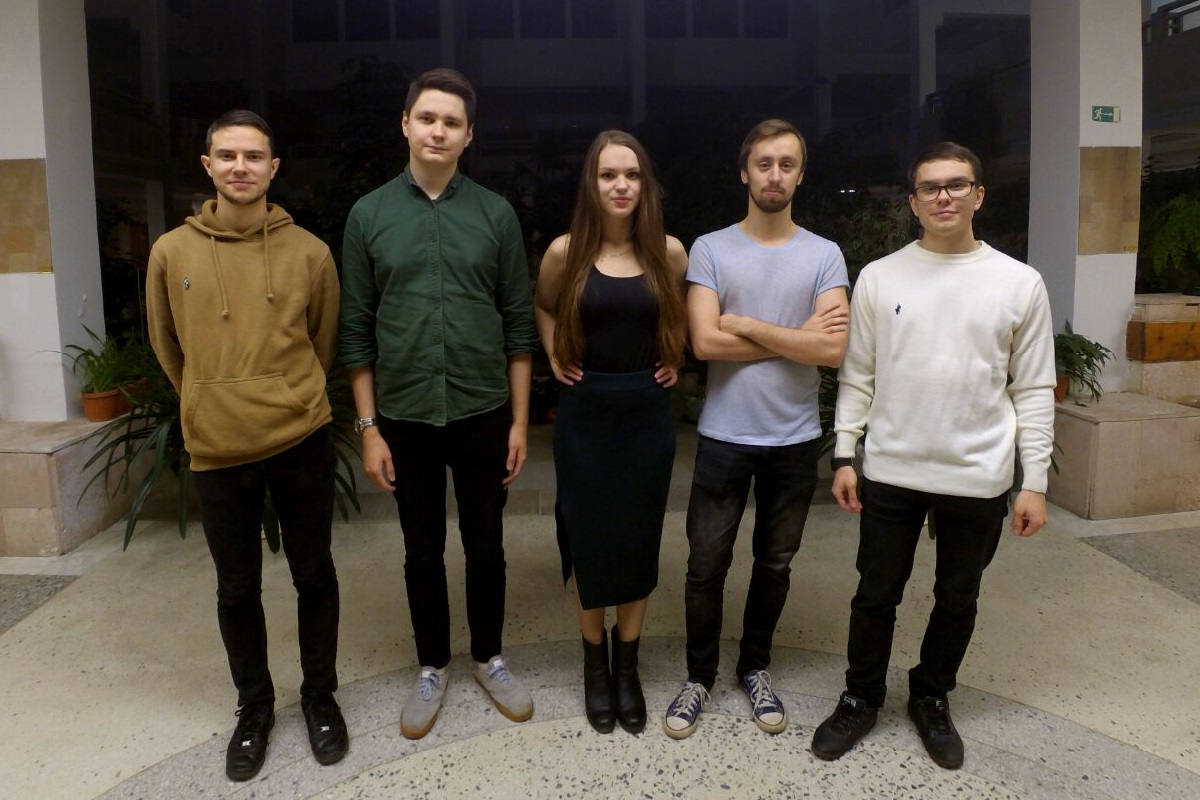Students from St Petersburg University create the first device for producing polymer nanocoatings in Russia

The Electrofiber team, participants in the SPbU Start-up – 2019 contest, created a device for producing polymer membranes that can be used in various fields - from biomedicine to sound insulation. Until now, such devices have only been made abroad.
Students from St Petersburg University developed a working model of the device, which makes it possible to produce modern coatings from polymer fibres which are several hundred nanometres thick. The nanostructured material is created using electrospinning technology, which is a method of producing polymer fibres by electrostatic forces in an electrically charged jet of polymer solution or melt. This is a method of additive processing, i.e. it makes it possible to 'print' the coating layer by layer. The process of production can be varied depending on the purpose of the coating and to give it additional properties. For example, it can be made waterproof, strong, flexible, etc.
The polymer films produced with the new device can be used in various spheres. For example, it can be used in bio-medicine for creating internal organ carcasses or applied in residential buildings instead of thick multilayer panels to supress noise. This modern material can also be used to produce military and sports uniforms.
The Electrofiber start-up project creates unique equipment at the intersection of chemistry, nanotechnology and engineering. It can be used for producing lightweight and waterproof materials with clearly defined parameters. In my opinion, this team of University students has all the necessary expertise to implement the project successfully.
Vladimir Mikhailov, research supervisor of the project, Assistant lecturer in the Institute of Chemistry at St Petersburg University
The authors of the project believe that their device may be of interest for research laboratories of companies that want to integrate new materials with improved characteristics into their production, and for research organisations, including St Petersburg University.
'Our development, if it is released on the domestic market, will become an import substitution product, because similar devices are only available abroad. Today, it is quite problematic to buy such equipment, because electrospinning is a so-called dual-purpose technology, i.e. it can be used to produce both civil and military products,' said Anastasiia Elistratova, captain of the team and a first-year student of the master’s programme in 'Fundamental and Applied Aspects of Nanomaterials and Nanotechnologies'.
Second-year master’s students, including master’s student in Chemistry Vladislav Gurenko, master’s student in Mathematical Modelling in Natural Sciences Ilia Lebedev, master’s student in Chemistry, Physics and Mechanics of Materials Pavel Talianov and fourth-year undergraduate student in Economics (Management of Organisation) Aleksei Novikov, also participated in the project.

